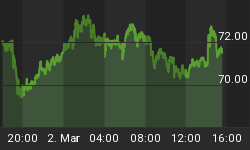It has been nearly 4 years since the fall of Japan-based Mt. Gox, arguably the most devastating incident to hit the bitcoin world, resulting in the loss of 650,000 bitcoin. It took almost two years for the bitcoin market to recover, but the episode may have just paved the way for the regulation of cryptocurrencies in Japan.
It seems fear has faded. Bitcoin is thriving, and Japan has taken huge steps to set up infrastructure and regulation surrounding cryptocurrencies. Now, even large corporations are offering to pay employees in bitcoin.
GMO Internet Group, an operator of a number of online businesses including a bitcoin mining operation and a crypto-exchange, announced that in February, the company will be rolling out a bitcoin payment program. Up to 100,000-yen monthly in bitcoin will be offered to its 4,000 employees. Though GMO is not the first company to offer payments in bitcoin, it may be the biggest.
“We hope to improve our own literacy of virtual currency by actually using it,” Harumi Ishii, a spokeswoman for GMO explained.
While it is especially noteworthy when a corporate giant such as GMO begins down the path of bitcoin adoption, Japan’s patience and long-standing crypto-friendly attitude finally came to fruition in April 2017.
When Japan officially recognized bitcoin as a legal payment method through its Virtual Currency Act, over 4,500 stores began accepting BTC and others for goods and services. The country’s acknowledgement of the potential of cryptocurrencies, and the focus on the protection of its citizens has since made Japan the epicenter of crypto-commerce, boasting over 50 percent of the world’s crypto-exchange volume.
In addition to the Virtual Currency Act, the Japan Financial Service Authority gained the ability to license and regulate bitcoin exchanges, while a new piece tax plan was pushed through which made trading cryptocurrencies more appealing to both domestic and foreign investors. With fresh tax incentives, and China’s regulatory confusion, Chinese Huobi, in partnership with Tokyo-based SBI announced an exchange and platform to develop “digital assets and financial services in Asia.”
It seems like it Japan’s efforts are paying off…
Analysts from Nomura, a financial holdings company based in Japan, are suggesting that proceeds from cryptocurrency trading could net the country an increase of up to $854-million in consumer spending. Nomura’s suggests that, due to the huge returns on bitcoin investments in Q4 2017, the country could see “a potential boost to real GDP growth on an annualized quarter-on-quarter basis of up to about 0.3 percentage points.”
Japan’s tremendous success in crypto-endeavors has also sparked the interest of its neighbors.
On January 8th, a South Korean news agency, Yonhap News reported that a top South Korean financial regulator is looking to cooperate with Japan and China with the goal to curb the speculative transactions of cryptocurrencies and provide market oversight. This comes following a statement from the Korean Financial Services Commission’s chairman suggesting that investment in cryptocurrencies is “irrational.”
China and South Korea have assumed a notoriously fickle stance on cryptocurrencies, with rumors of bans, criminal action, crackdowns, and shutdowns swirling around for years. However, official correspondence from the South Korean government issued today quashes rumors on a trading ban, stating that nothing is finalized. that Whatever the end goal may be, Japan’s success in the sector has certainly made its mark, and while China and South Korea struggle to find their regulatory foothold, Japan’s future is promising, painting an ideal portrait for countries looking to follow the same path.
On top of everything else, Japan even has its own crypto-crazy, all-girl J-pop group, the Virtual Currency Girls, whose “Moon and Virtual Currencies and Me” advocates for cryptocurrencies and raises awareness about online security.
Rara Naruse, the group’s leader, noted: “We want to promote the idea through entertainment that virtual currencies are not just a tool for speculation but are a wonderful technology that will shape the future.”
Who knows? Maybe someone will take note.
By Michael Kern via Crypto Insider
















